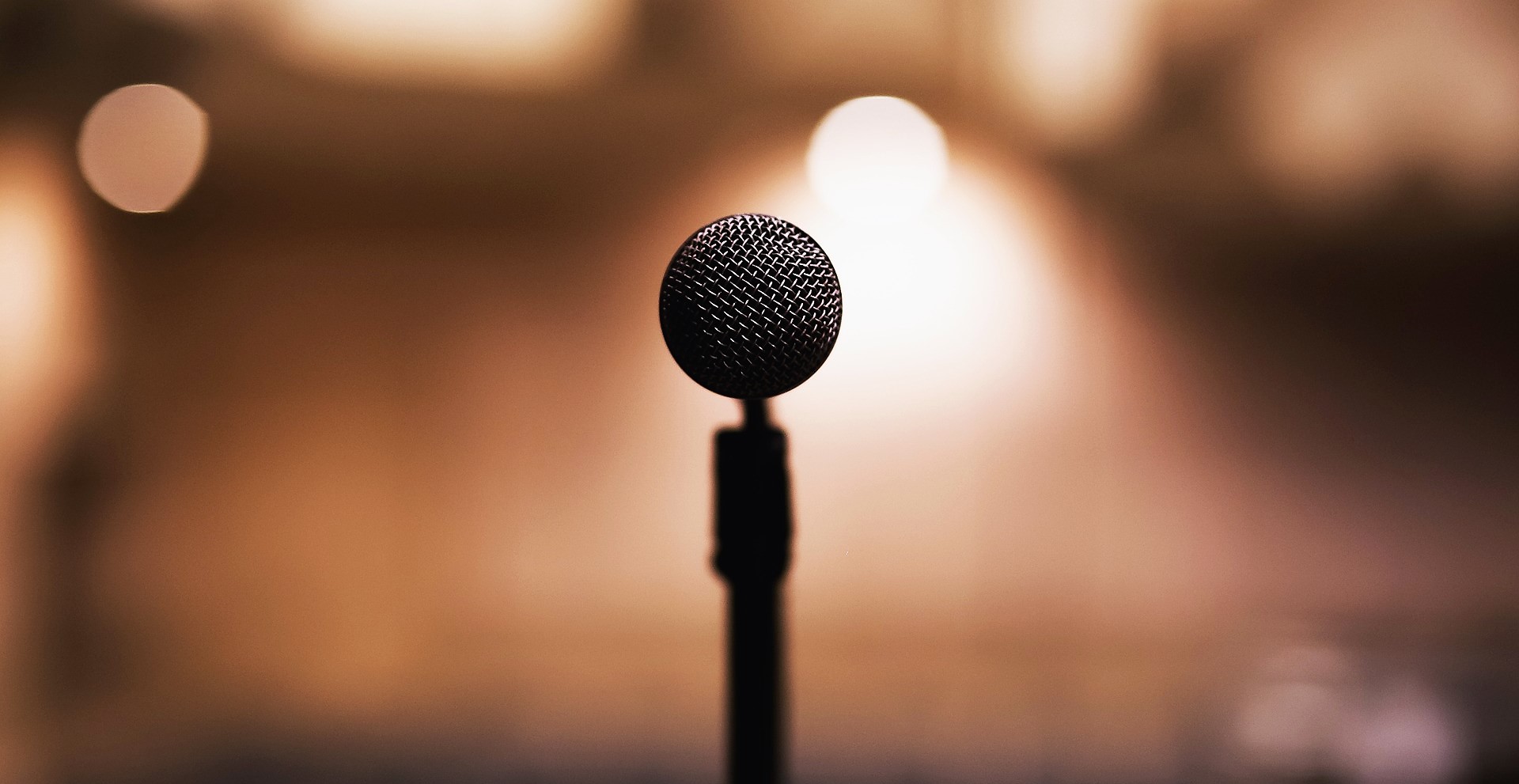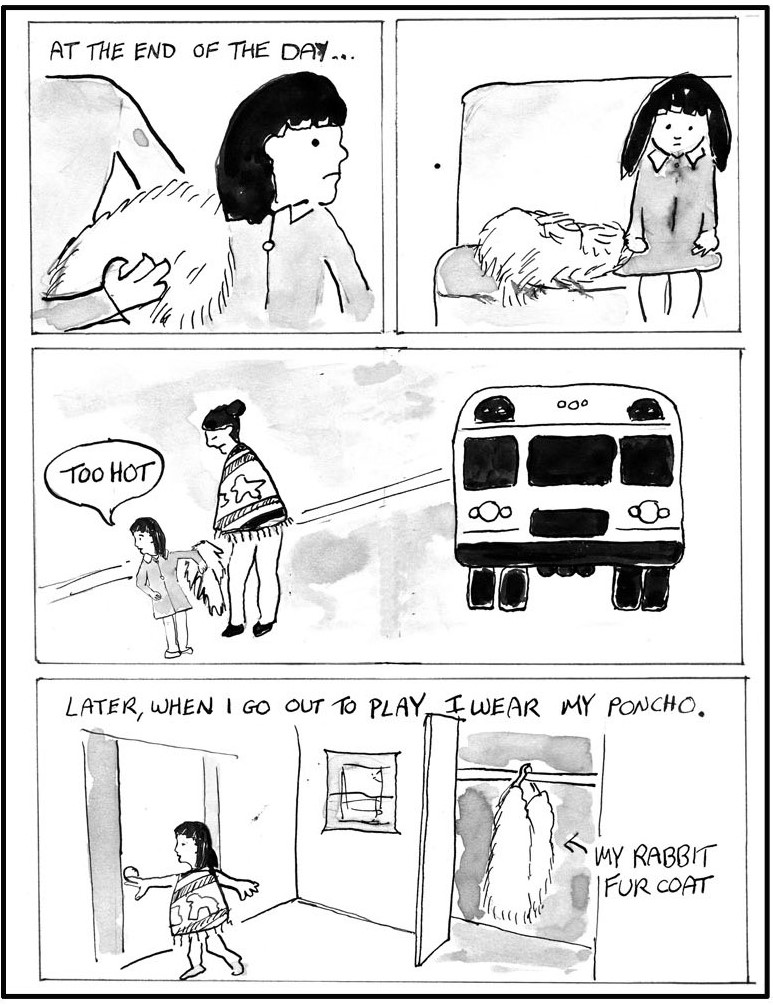On Podcasts, Glitches and Endings
By Shawna-Lee I. Perrin
I’ve taken to listening to podcasts while I clean one thing or another or drive solo somewhere. When I find one I love, my kitchen sparkles and I run lots of useful errands. My favorites are fiction. Whether they hook me or not, each one teaches me something about telling a story, building a world, developing characters and their voices. When I get through a series, they teach me a lot about endings; what’s effective, and, just as educational, what isn’t. Respectively, I’m thinking of two podcasts in particular: Wolf 359 and The Black Tapes. Some spoilers ahead, but I urge you to listen to them (whether you read the rest of this piece or not) and decide for yourself.
I don’t know anyone in real life who listens to the same podcasts I do, so Reddit has become my proverbial water cooler for such things. Last year, I discovered The Black Tapes while it was on a brief hiatus and shortly before it was due to end. Many on Reddit had listened since the show started a couple years earlier, so their wait between episodes and seasons was considerable, especially compared to my latecomer’s instant gratification up to that point. It was so good – scary, haunting, and smart. The longtime listeners had a lot of time and energy invested, which likely had an effect on their reactions to the short third and final season in general, and the final episode specifically. It didn’t really resolve – well, anything, but that was how the writers chose to end it. When the final episode finally came out, I paused my steel-wooling of dried-on beans from a pot, looked at my little speaker, and said, “Huh. Well. OK.”
When I checked in at Reddit a day or two later, I quickly realized that fans were, to put it mildly, not pleased. People swore they would never give money to this group of storytellers or any of their other podcasts again. They said they would try to pretend that there hadn’t ever been a third season, and if anyone ever asked them about it, they would say just listen to seasons one and two, and just stop there. They said the finale’s writing was lazy, slap-dashed and half-assed. Amateurish and insulting and negated everything that they had previously loved about it. And goddamn it, we trusted them, and they do this.
A typical episode was anywhere between 33 and 47 minutes; the final episode was only 27 minutes, 18 seconds. And that included three rather long advertisements plopped in the middle in two different spots. In retrospect, they did leave us hanging. There was a near-constant threat of world annihilation in the world of The Black Tapes, but they didn’t ever actually tell us the outcome. I’d bet that a certain sock company’s revenue decreased after that one.
"I tend to trust the storyteller. Whether or not I like the ending of something is irrelevant; once a thing is out there, how it ends is how it ends."
Conversely, Wolf 359’s finale clocks in at just over two hours (and they never ran ads – just did the Patreon thing). Not everything wrapped up as nice and comfortably as we listeners would have preferred, yet people almost universally adored the ending. The writers clearly took their time. They resolved important threads while unraveling another, and they did tell us what happened regarding the threat of world annihilation. We have no idea where these people will end up, but their story began, middled, and ended in a specific context; that context is really all they needed to resolve. I may have cried, but just a little.
All of this got me thinking about what readers and/or listeners feel are owed to them in an ending. In these days of instant feedback and the possibility for interaction with people writing or voice-acting on something like this, we listeners can sometimes feel like we’re part of it. The reality is, we are not.
I know what it’s like to see or hear or experience something arty and instantly feel a pull, a connection. Be it a book, music, a stand-up comedian’s set, or an exhibition at an art gallery, it’s like, “This is a something that I never even knew I wanted or needed, but now I do, and it’s in me, and I’m in it.” It’s powerful.
I tend to trust the storyteller. Whether or not I like the ending of something is irrelevant; once a thing is out there, how it ends is how it ends. I see people calling bullshit on different endings (Twin Peaks, Lost, even the original Dallas – which, well, ok, actually, yeah.), and they always have reasons for their opinions, usually very well thought-out ones. But I always find myself thinking, “But how do you know that? How do you know better than this thing’s creator(s)?” And I really do want to know how they know that. Because I’m at a loss.
There’s a significant character in Wolf 359 that’s an AI (Artificial Intelligence) autopilot for the space ship (trust me, they make it make sense). Her name is Hera, and when her computer voice speaks, it glitches sometimes; it sounds sort of like a stutter. And here’s where you should really skip the rest of this paragraph if you don’t want a spoiler from episode 41, “Memoria.” In this especially poignant episode, we find out that Hera’s programmer – the one who created her to not only know vast amounts of information, but also to kind of think for herself – hardwired the following two phrases to play in a loop in Hera’s brain/code: “I can’t do this. I’m not good enough.” Hera’s creator did this as a way to “clip her wings” if she started thinking for herself too much. Turns out, it caused the vocal glitch. It also caused Hera to not pull things off that she was actually perfectly capable of.
What an insight into human nature! What a thing to identify completely with as we try to write, as we try to get better, as we try to get other people to believe in us and help us get our work out into the world. To get people to trust us, the storytellers.
In my own writing, I know that what I need to do is trust my training, my reading, my knowledge of my characters, my connection with creativity and inspiration as much as – actually, more than – I trust other story tellers. But it’s so hard.
At 47, I’ve completed writing and [for now] revising my first novel. I’m proud of it, and I’m trying to get it out into the world. Yet there’s this annoying glitch in my brain... Even if I wrote a scene that touches someone, or maybe even a couple or a few, if the ending isn’t what they would have done, will they feel let down? Will it negate everything that came before? The parts they liked or even maybe loved? I hate letting people down. But I gave it everything I had, I followed the characters into sometimes uncomfortable-to-me places, and I did my best to be true to them. And that’s all I can do.
Podcasts are not just an escape, just as stories aren’t just an escape: they have the power to make us recognize things in ourselves, in humanity, and even the universe. They have the power to disappoint as much as enlighten and satisfy. What a wonderful and terrifying pursuit this is! And, like Hera, all we can do is recognize that glitch that makes us undermine ourselves, move the hell past it, and keep writing. Keep getting better. And if a few people are disappointed, so be it; let them try it.














